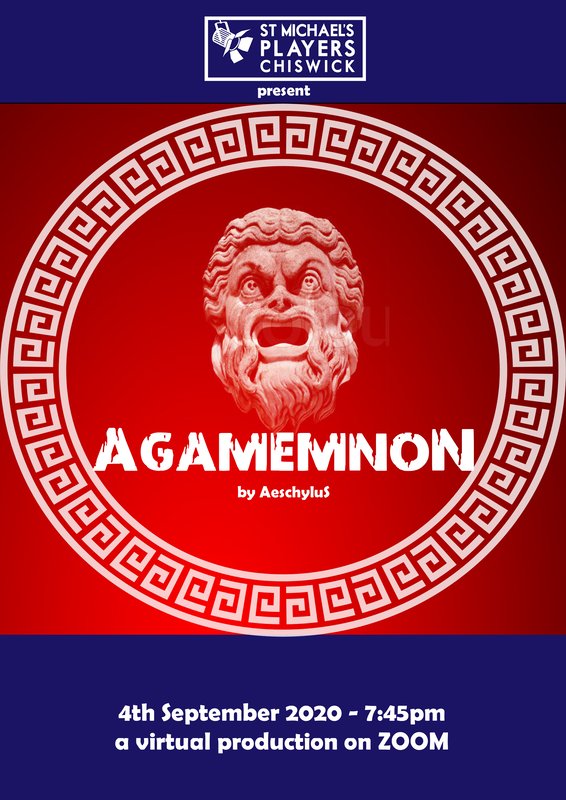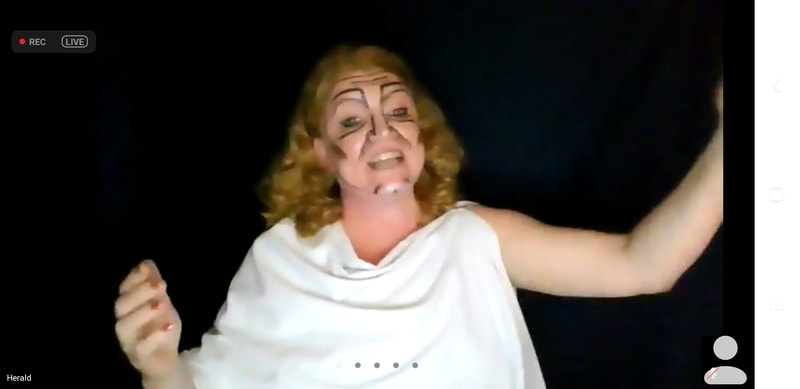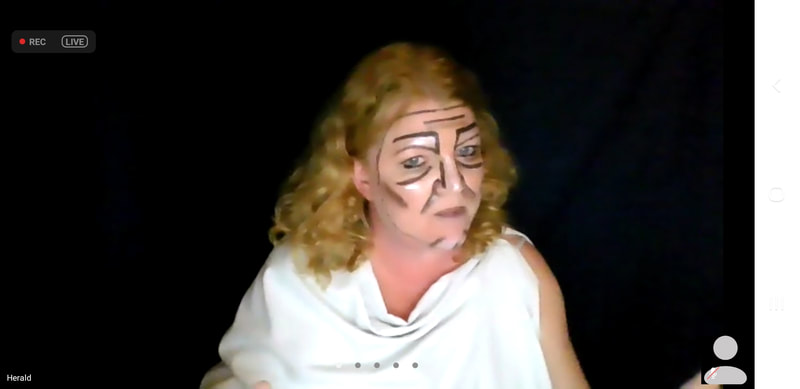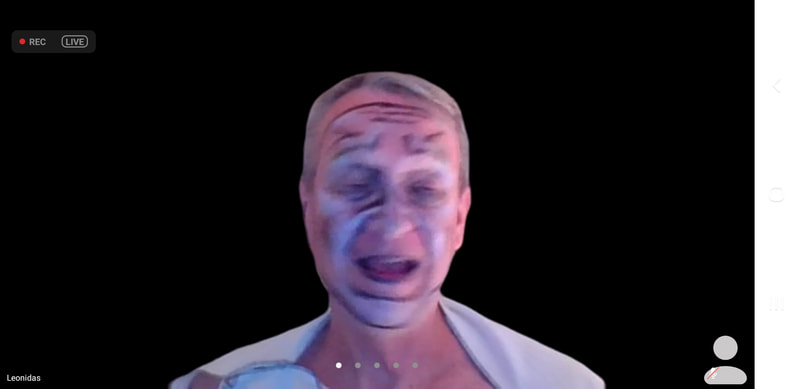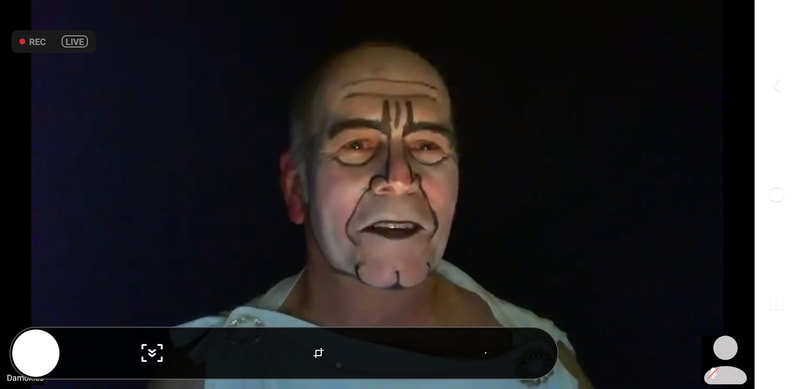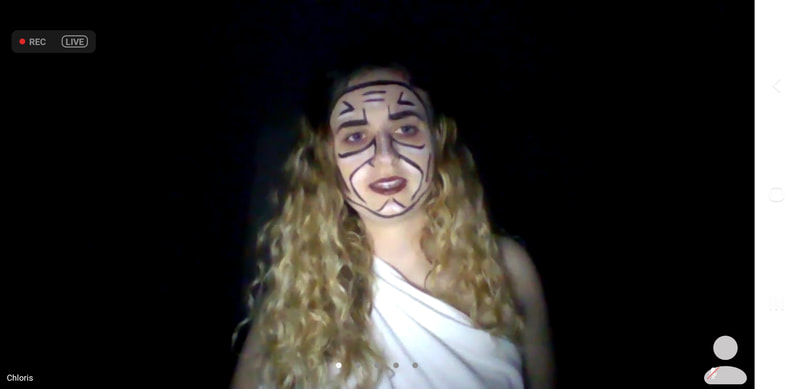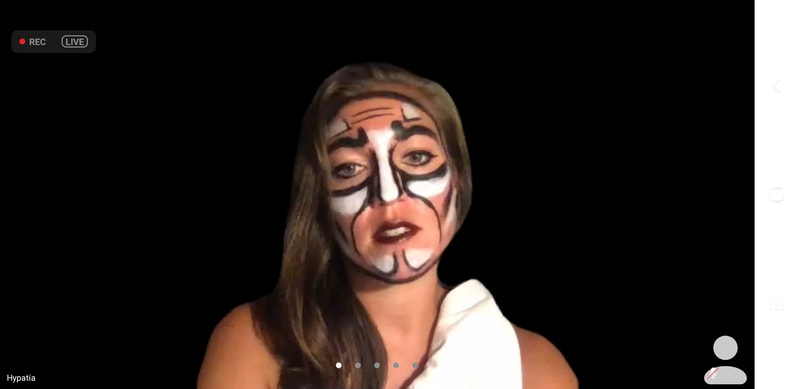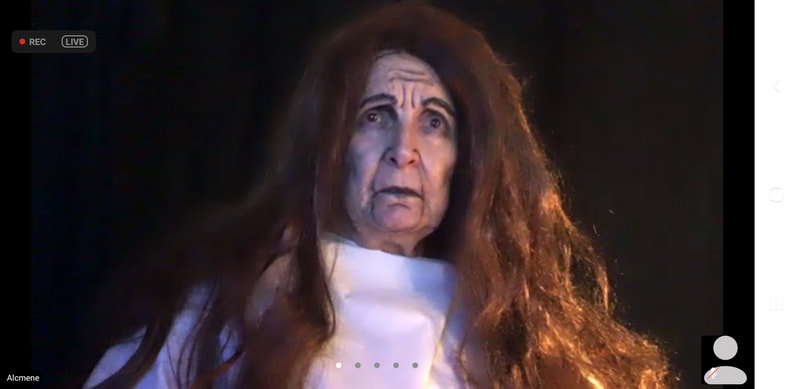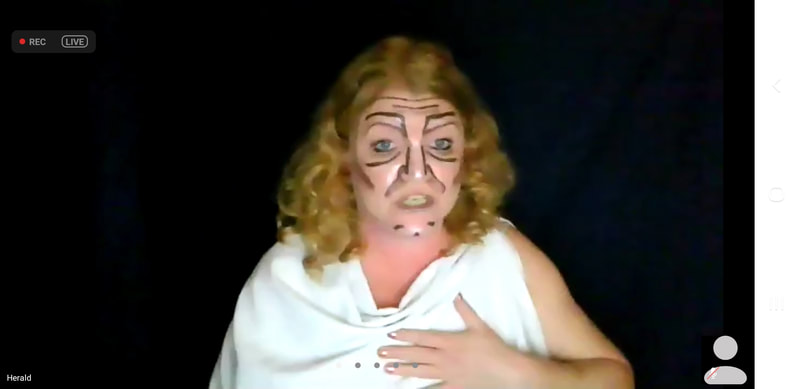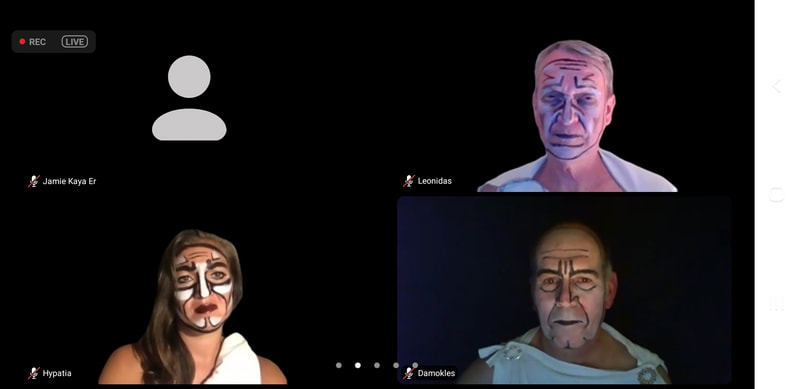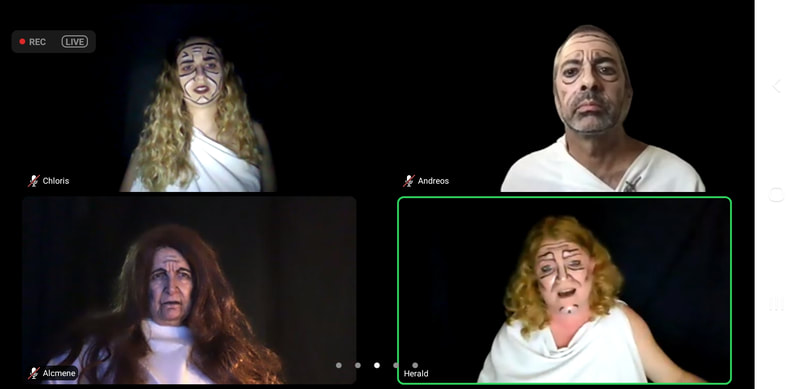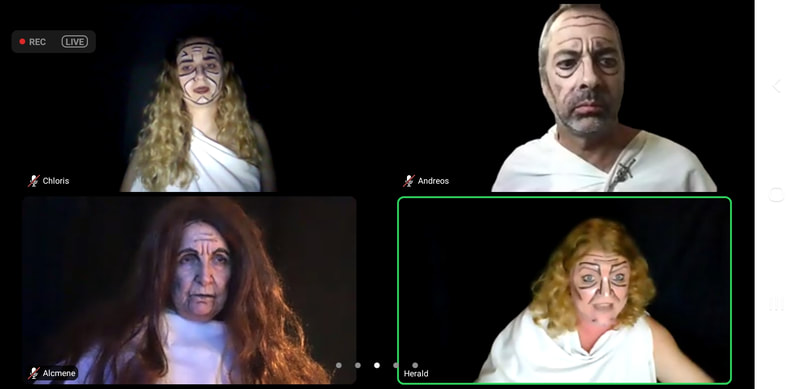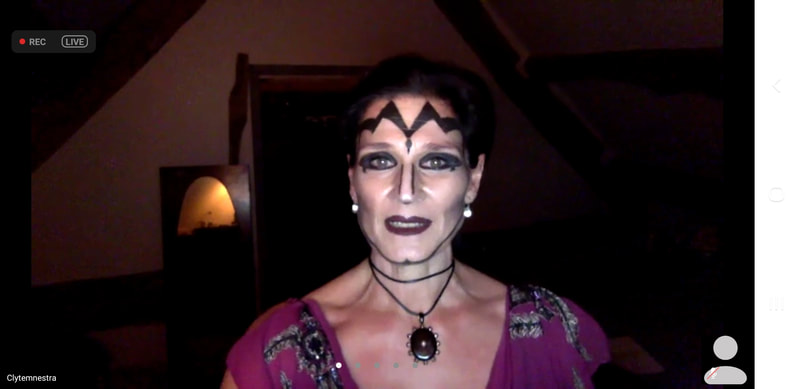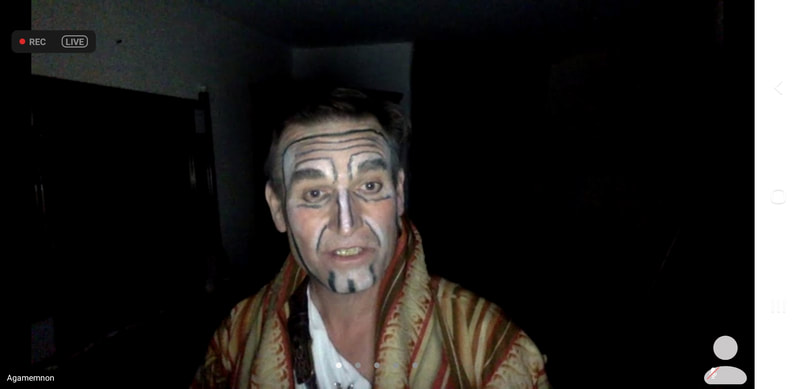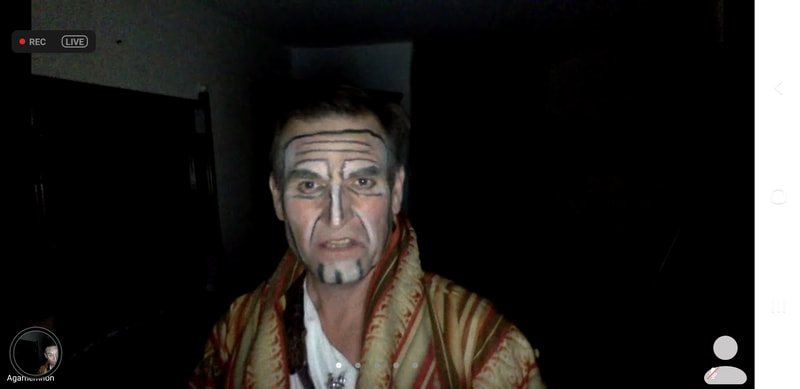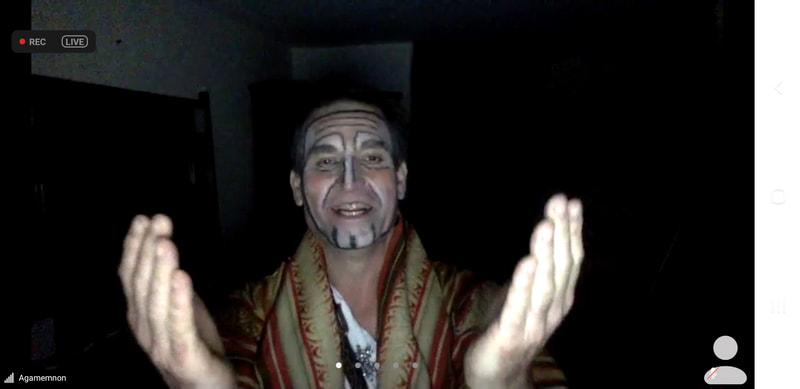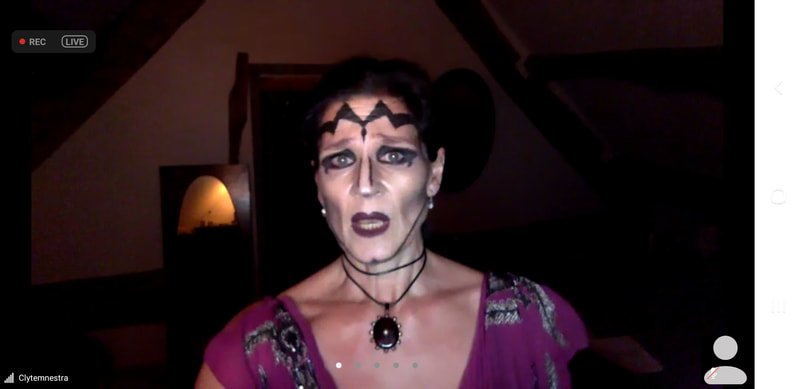"Agememnon" by Aeschylus (4 SEP 2020)
From the midst of the COVID-19 comes a Greek Tragedy, adapted for the little screen and performed over Zoom. Minimal make-up and extensive social distancing in this show. With actors in Wales, Crete, Italy, Lymington and even a few in Chiswick. Unfortunately a private reading for members only.
Poster
Agamemnon is the first part of the oldest extant theatrical trilogy known to man - the Oresteia by Aeschylus. The Oresteia won the first prize at the Dionysia Festival in Greece in 458 BCE, so it's been performed for over 2500 years and seemed an apt choice to begin a post Pandemic theatre
Agamemnon is the first part of the oldest extant theatrical trilogy known to man - the Oresteia by Aeschylus. The Oresteia won the first prize at the Dionysia Festival in Greece in 458 BCE, so it's been performed for over 2500 years and seemed an apt choice to begin a post Pandemic theatre. Agamemnon, by Aeschylus Agamemnon, the King of Argos, returns home after winning the Trojan war. His wife, Clytemnestra, welcomes him with great pomp and ceremony, but it becomes apparent that before long blood will flow. It also emerges that the family is cursed because of the horrific actions of their forefathers, and it is this horror of past events that will return to haunt and destroy them. Although many events of the play are ascribed to the caprice of the gods, and fate is blamed for the way things play out, Agamemnon is really the story of very human frailties, elemental weaknesses that play out in every tragedy before or since. Desire, ambition, jealousy, revenge, and arrogance are as much a cause of tragedy in the world of Argos as they are today. Agamemnon is written in the epic form of theatre, as against the dramatic form that we are more familiar with. The epic form is less realistic in its depiction of events, but more psychological in the effect it's meant to have on its audience. The main characters tend to be archetypes, and the chorus represents the common people or us, the audience. The commentary of the chorus on the events within the play both respond to the events as characters in the landscape on the play, and as external viewpoints on the meaning of it all. The epic form seemed to us to be a good way to reinvent theatre in a post Pandemic virtual world, when so many things are changing, and yet, we, and our very human frailties, remain ever more the same |
PHOToSA few screen shots
|
Reviews"I just wanted to say how much I enjoyed watching Agamemnon. It was excellent. Congratulations to you all. I do not have the email addresses of everyone involved so you are the chosen few to receive this!! Cressida told me that you all stayed on for a chat afterwards. I am sorry to have missed that" Roger H
|
CastChorus 1 (Paul Smith)
Chorus 2 (Bryony Wilman) Chorus 3 (Flora Barker) Chorus 4 (Georgina Parren) Chorus 5 (Alastair Dewar) Chorus 6 (Chris Hulatt) Clytemnestra (Arabella Harcourt-Cooze) Herald (Stella Henney) Agamemnon (David Burles) Cassandra (Ilaria Diotallevi) Aegisthus (Paul Smith) |
CrewDirector (Deesh Mariwala)
Technical (Ian Trowbridge) Make-Up (Teena Heer) |

